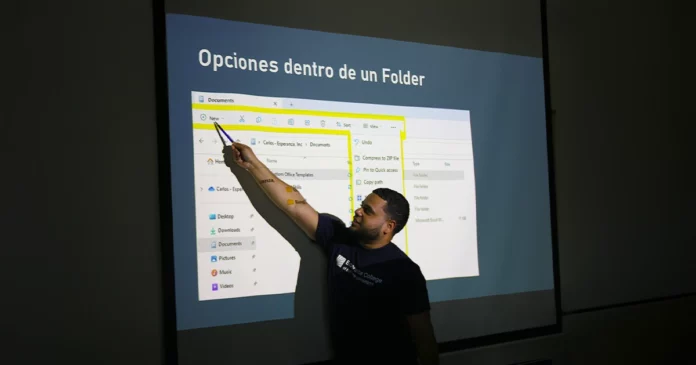
Underrepresented communities across the nation continue to struggle with limited access to computers, a challenge that especially affects North Philadelphia, where many residents live well below the federal poverty line. In today’s world, digital access—the ability to fully participate in a digital society—is increasingly vital for success in the workforce (Source: upward-mobility.urban.org/digital-access). To address this issue and encourage the adoption of digital devices at home, the Hope Digital Skills (HDS) program was established at Esperanza College.
I’m Ramar Huntley, the data coordinator for Esperanza’s HDS program, where I lead the data collection and analytics efforts. The dashboard is designed to provide crucial context about our program, emphasizing the benefits of attending workshops offered by Esperanza. It also offers key insights into ethnicity, internet and computer access, and digital skills, alongside additional resources to help community members enhance their computer and critical thinking abilities. The primary goal of the HDS program is to educate, equip, and empower Latinos and other individuals in our community to effectively use digital tools to achieve their workforce, education, and health-related objectives.
In this article, I’d like to give you a tour of the dashboard, so you know how to use it. The first page, titled “ABOUT US” page on the dashboard provides an overview of the Hope Digital Skills program, highlighting its objectives and the importance of digital literacy. The WHY HDS? page offers insights for those interested in workshops, including participant demographics. The HDS PROGRAM page presents key metrics and numbers that show what we have done with the program so far, while the COMMUNITY SURVEYING page houses the results of our call center outreach data with additional visualizations like census maps and a word cloud showing the zip codes where people who answered the survey live. The ADDITIONAL RESOURCES page aligns US census data with our findings and offers related research, and the HDS WORKSHOP SIGN-UP page provides a link to register for upcoming workshops.
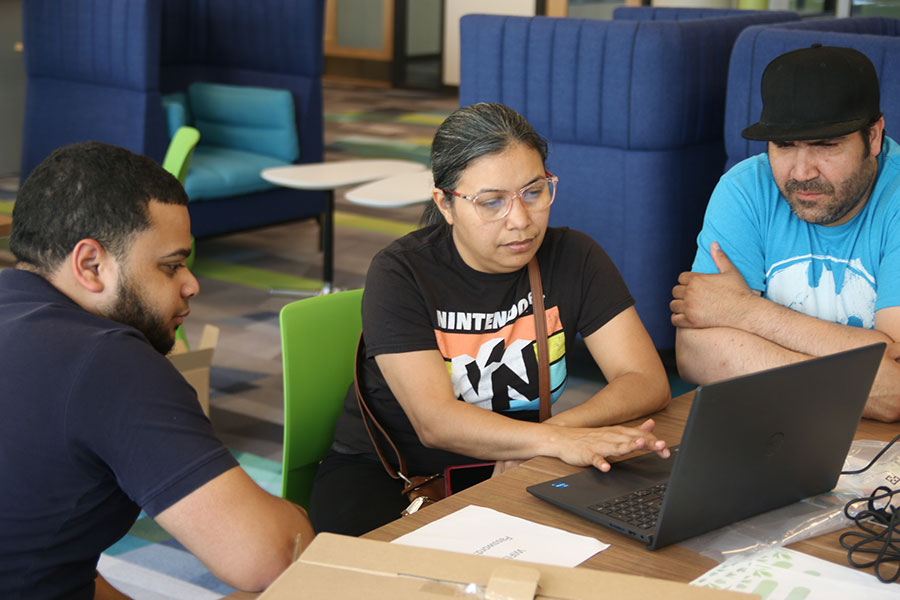
The HDS dashboard was designed to give community members, academics, policymakers and advocates easy access to essential information about our program. Without needing to sift through extensive details, users like you can quickly understand the services we provide and the impact we are making on the local community. Prioritizing inclusivity, the dashboard is user-friendly and simple to navigate, allowing individuals to easily view charts and demographic data, and relate to the information presented. For those who may be unsure about how to get started or hesitant to sign up for a workshop, the website serves as a welcoming entry point, offering guidance and the opportunity to provide feedback on our classes and programs. The HDS dashboard also offers a transparent view of our program’s achievements and ongoing efforts to enhance digital access and literacy in the Hunting Park, Feltonville and Juniata community. We are committed to keeping this data regularly updated to maintain openness and transparency with our community when it comes to digital skills.
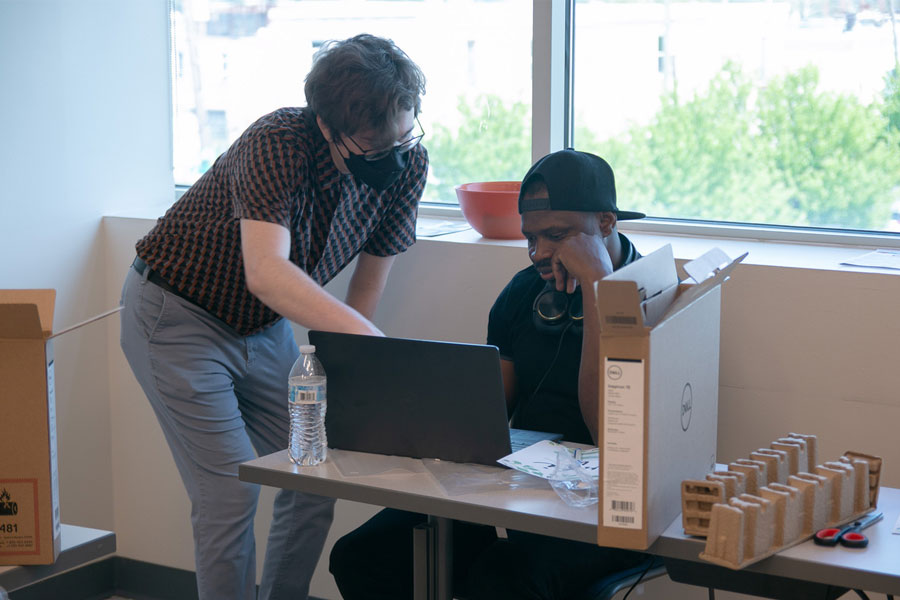
The data on the dashboard and other sources provides interesting insights into our community’s digital access and literacy. According to the US Census, 88% of households in Philadelphia had access to broadband internet, compared to 87% of survey respondent households reported during phase 1 and 2 of our call center outreaches. Overall, in Philadelphia, 73% of households reported having access to a computer, while only 53% of survey respondents had access to a computer at home. In Philadelphia, the median household income is $57,537, with 22.72% of the population living in poverty as of 2018-2022. Among participants in our main program, 48% reported an income of $0-$10,000, falling well below the national poverty threshold. This contrast in computer access between the US census data and the intake data reflects the tendency of HDS program participants to seek community resources due to limited financial resources and computer and internet access at home.
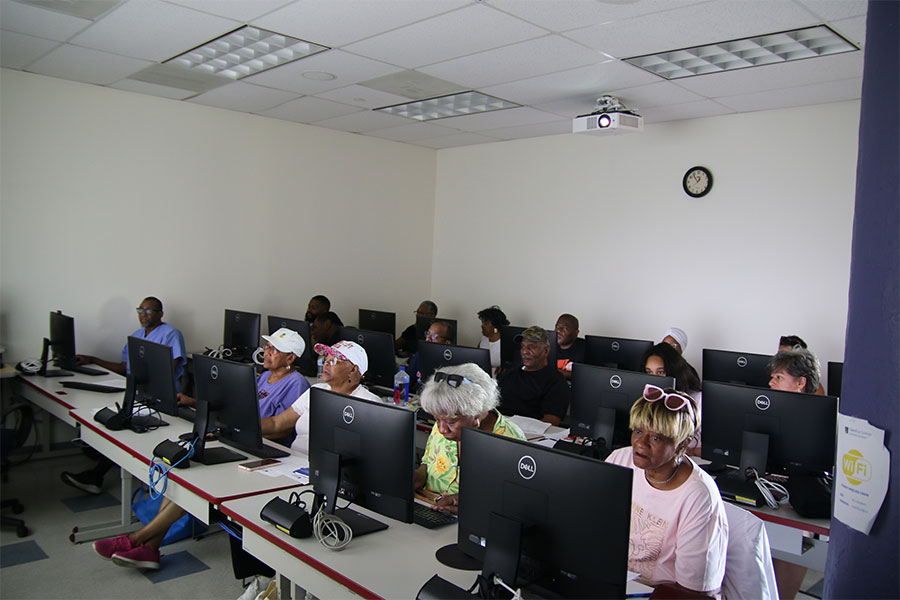
In response to these challenges, we are excited to continue offering Hope Digital Skills workshops like the «Fundamentals of Python for Beginners Part 1 and 2,” which I will be teaching on September 17th and 19th at 5 PM. These two workshops will cover the basics of Python programming, including an introduction to variables, data types, control structures, and functions. Participants will also learn how to write simple scripts and understand the foundational concepts needed to begin coding in Python. Whether you’re new to programming or looking to strengthen your digital skills, these sessions will provide valuable hands-on experience and guidance to help you get started with coding. You can sign up for these workshops via the «Select a Date & Time» option on Calendly using the following link: Select a Date & Time – Calendly. Further information regarding the dashboard can be found at Hope Digital Skills Analytics Dashboard (ramarh.pythonanywhere.com).
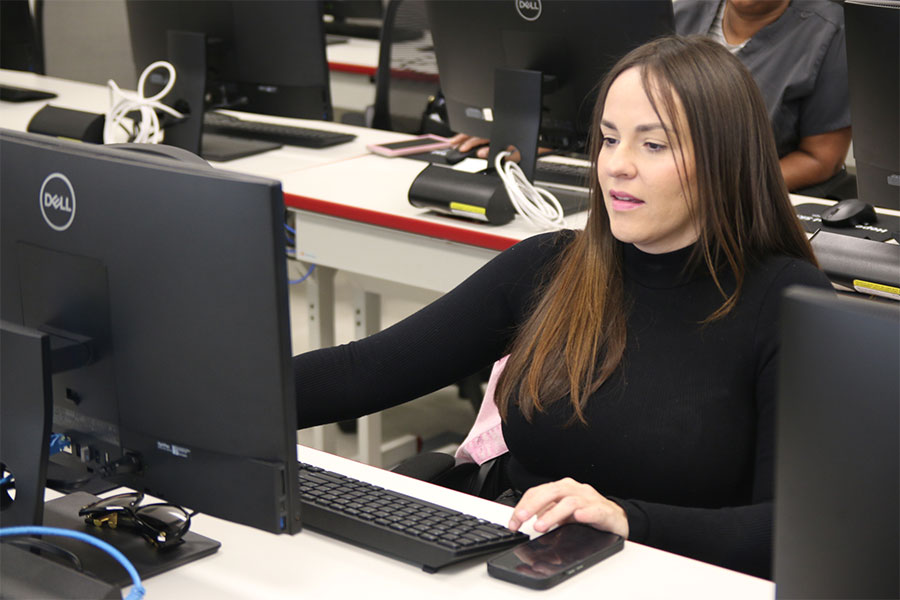
If you’d like to provide feedback on the dashboard, please contact me using Esperanza’s main phone number (215) 324-0746 or via email directly at rhuntley@esperanza.us.






